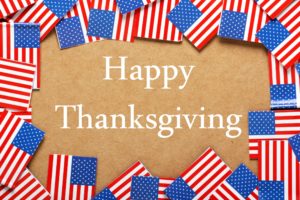by Gabriel Levitt, President, PharmacyChecker.com and Prescription Justice | Dec 7, 2018 | FDA enforcement
 People buying medications to fill prescriptions in Canada or other countries because prices are too high domestically don’t get prosecuted for it. But people who import drugs illegally and resell them—especially controlled drugs, like prescription opioids, benzodiazepines, and amphetamines— get busted and go to jail for a pretty long time. Even seemingly small-time drug dealers.
People buying medications to fill prescriptions in Canada or other countries because prices are too high domestically don’t get prosecuted for it. But people who import drugs illegally and resell them—especially controlled drugs, like prescription opioids, benzodiazepines, and amphetamines— get busted and go to jail for a pretty long time. Even seemingly small-time drug dealers.
As reported in Madawaska, Maine’s local news WABI5, Tristan Nelson was sentenced to a year and a half behind bars for illegally importing 950 pills of Ritalin (an amphetamine) and 450 pills of Xanax (a benzodiazepine) from the Philippines with intent to sell.
Of note is that neither of the medications was a prescription opioid, which is the highest enforcement priority of the U.S. FDA. Addiction to non-opioid controlled drugs, however, is also a public health problem, and clearly law enforcement takes illegal imports of them seriously.
The short story reported in WABI5 simply noted: “Nelson admitted to investigators he ordered the pills and planned to sell them.” It did not say how he ordered them, such as from a rogue online pharmacy, but perhaps I’ll find his court documents later this month to find out more.
Rogue online pharmacies selling controlled drugs for import, and domestic drug dealing, menace the Internet. But according to government data, they are not a major factor in the nation’s crisis with drug addiction and overdose.
FDA enforcement actions leading to prosecution, fines and/or jail for illegal drug importation focus on illegal wholesale importation of all prescription drugs, whether controlled or non-controlled prescription drugs. While it prioritizes counterfeit drugs, the illegal imports can be lawfully-manufactured, safe and effective. Recently, its focus is on stopping imports of fentanyl, mostly its ingredients. Part of that battle is stopping Internet activity that leads to the illegal fentanyl trade. Such ingredients, ordered online and then imported, are used to make fake opioid prescription drugs, which have exacerbated our nation’s crisis with drug addiction and overdose.
Tagged with: controlled drugs, Enforcement, fentanyl, opioids
by Gabriel Levitt, President, PharmacyChecker.com and Prescription Justice | Nov 30, 2018 | Drug Importation
 Earlier this month, the American Medical Association voted to support “in-person” personal drug importation from Canada so that patients can benefit from lower pharmacy costs. According to its press release, the new policy is a response to “intensified concerns that patient out-of-pocket costs for prescription drugs have hampered access to needed medications.” To say the least! A survey, published in Axios, showed that about 90 million Americans did not fill a prescription because of cost last year.
Earlier this month, the American Medical Association voted to support “in-person” personal drug importation from Canada so that patients can benefit from lower pharmacy costs. According to its press release, the new policy is a response to “intensified concerns that patient out-of-pocket costs for prescription drugs have hampered access to needed medications.” To say the least! A survey, published in Axios, showed that about 90 million Americans did not fill a prescription because of cost last year.
It’s good that the AMA is supporting Americans filling orders in-person at Canadian pharmacies, but its support is so limited… to the extent that it’s hard to tell what if any impact AMA’s recommendation could have to help more patients. Furthermore, the association appears to be confused about existing law.
First, the AMA’s support does not include Internet or mail-order pharmacy purchases from Canada. In fact, it opposes personal drug importation through Internet purchases “until patient safety can be assured.” Therefore, its proposed policy is likely to help only those who actually live near Canada. (more…)
Tagged with: American Medical Association, Customs and Border Patrol
by Gabriel Levitt, President, PharmacyChecker.com and Prescription Justice | Nov 20, 2018 | Drug Prices

Wishing you affordable medicine and food this Thanksgiving!
When it comes to healthcare, and especially prescription drugs, 62% of Americans are concerned with costs. In the richest country in the world, it saddens me to report that accessing food — and eating more healthy foods — is a big problem, too.
This Thanksgiving it’s important to consider and stand with the millions of Americans who have to decide whether or not they will eat the food they want or take the medicine they need. Over 30% of Americans delay buying food or buy less food so that they can pay for medical and prescription drug expenses. That’s according to an annual survey about food purchasing behavior by the International Food Information Council (IFIC) conducted earlier this year.
This is not necessarily a hunger issue, although hunger in America is a problem. The IFIC study shows that 50% Americans sometimes buy less healthy food because it’s more affordable. Those less healthy diets lead to negative health outcomes, such as obesity, and more prescription drug spending!
A Commonwealth Fund survey showed 18% of Americans aged 19-64 did not fill a prescription in 2016. In my role with the non-profit organization Prescription Justice, we used that data and other survey data focused on people 65 and older to discover that 45 million Americans did not fill a prescription because of cost in 2016.
This is entirely unacceptable for America. What is worse is that even with a strong economy and unemployment at almost a 50-year low, affording medicine and healthy food is still difficult for so many families.
I hope that the work of PharmacyChecker to provide useful information on affording medicines and advocating for patients helps make it easier for Americans to afford both food and medicine – and to have a very, very Happy Thanksgiving.
Tagged with: food or medicine, holiday greeting
 People buying medications to fill prescriptions in Canada or other countries because prices are too high domestically don’t get prosecuted for it. But people who import drugs illegally and resell them—especially controlled drugs, like prescription opioids, benzodiazepines, and amphetamines— get busted and go to jail for a pretty long time. Even seemingly small-time drug dealers.
People buying medications to fill prescriptions in Canada or other countries because prices are too high domestically don’t get prosecuted for it. But people who import drugs illegally and resell them—especially controlled drugs, like prescription opioids, benzodiazepines, and amphetamines— get busted and go to jail for a pretty long time. Even seemingly small-time drug dealers.



